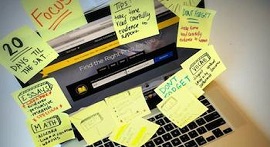Academics
The State University of New York-College of Environmental Science and Forestry is the country's oldest college dedicated entirely to environmental discovery, learning, and sustainability. Campus occupies 12 acres in Syracuse and the institution uses 25,000 acres located across central New York and the Adirondacks as a "living laboratory" for hands-on projects and research. ESF's 1,60*0 undergrads choose from 27 majors (as well as plenty of specialized courses) and are able to take classes and use facilities and resources at neighboring Syracuse University. The school reports an excellent job placement rate, and students tell us "the student body and faculty care about each other and help everyone get the most out of the experience."
The professors here are "so down to earth and passionate." They "seem to love what they do, and they are all conducting their own research," and this research "is sprinkled into the undergraduate experience." Every class "is applied directly to your major and field of interest." Be it paper engineering and renewable materials science, forest resources, or environmental interpretation, "ESF will cater to your specific needs." The small campus size allows plentiful opportunities for students to gain close relationships with professors, often eventually leading to projects or teaching assistant positions." When it comes to jobs in the environmental field, ESF is well recognized, and "the name alone will likely set you ahead in your career." The school "truly does provide you with the necessary experience for your field with challenging courses and endless volunteer, research, and internship opportunities throughout your time at ESF."
Student Body
Students describe ESF as "fostering a community that uses the knowledge it gains through schooling to make real changes to our world." Though "everyone takes a different path toward the end goal of helping our planet prosper, it's a main concern for all of us," according to one student. With this common goal, students feel "an almost instantaneous camaraderie." This is "one of the most accepting groups of students" out there, and students here "are free to rock their own styles." As one enrollee puts it, "No one is afraid to be themselves, and it is a very open...environment." While some are more focused on wildlife and others on timber resources, "everyone enjoys being outdoors," and students are "often caught discussing class or lab topics in their free time."
Campus Life
ESF is home to is an extremely active student body, with "students participating in several clubs at a time and holding several leadership positions at a time." There are a lot of wonderful organizations on campus to get involved in, but when students are tired of those things, "the school shares a border with a 160*-acre forested cemetery and it is a very popular place for students to explore and hang out." Central New York is also filled with things to do for students with cars, mostly parks and waterfalls. "Here at 'tree school,' we spend most of our time studying, chilling with pals, or appreciating nature," says one student, adding that students looking for a more active social life enjoy "using Syracuse University facilities and attending their parties." ESF students have the option of pledging Greek organizations at Syracuse, as well. ESF is a smaller school so "everyone really does know everyone." The off-campus housing situation illustrates this pretty well; "most of the students from our school live along this one street."




